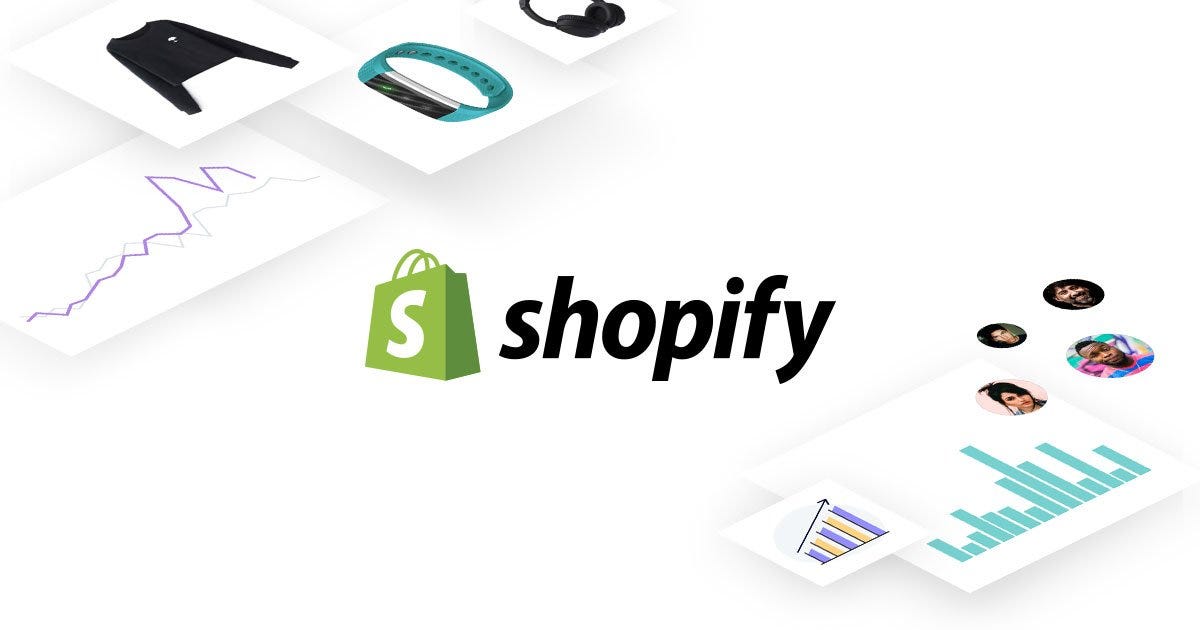Are You Truly Leveraging Shopify’s Built-In Analytics Tools?

Introduction:
Data is the essential component for success in the quick-paced world of eCommerce. One of the top eCommerce systems, Shopify, gives its customers access to a number of analytics tools that allow them to gain insightful knowledge about the operation of their business. Still, it begs the question: Are we utilising Shopify’s integrated analytics features to their full potential? We’ll look at Shopify’s analytics capabilities and how to make sure you’re using them to their fullest potential in this blog post.
Understanding Shopify’s Built-In Analytics Tools
1. Sales Reports and Dashboards:
Shopify gives you an overview of your store’s performance with its extensive sales reports and dashboards. With the use of these reports, which monitor sales, orders, and returns, you may assess patterns, earnings, and consumer behaviour.
2.Custom Reports:
Users can customise the platform to make reports that are tailored to their own requirements. With the help of this tool, you may monitor your goals’ progress and concentrate on important indicators that are critical to your company.
3.Conversion Analytics:
Shopify’s analytics tools facilitate conversion funnel analysis. You can find opportunities for development and enhance the user experience to increase conversions by knowing the path a consumer takes on your website.
4.Customer Behavior Analysis:
It’s essential to comprehend how customers behave. Shopify’s analytics facilitate the analysis of trends, inclinations, and buying behaviours. The aforementioned data can be leveraged to improve consumer interaction, product offers, and marketing methods.
5.Traffic Sources:
You can track and examine the sources of traffic to your store with Shopify. Your marketing efforts can be guided by understanding the source of your traffic, which will enable you to allocate resources to the most productive channels.
Evaluating Your Utilization of Shopify’s Analytics Tools
1. Regular Monitoring:
Do you often use Shopify’s analytics to track the performance of your store? By conducting routine checks, you may keep up to date on trends and use that information to make informed decisions.
2.Goal Alignment:
Do your analytics endeavours correspond with your company objectives? Make sure the data you’re monitoring have a direct bearing on your goals, whether they be raising revenue, boosting customer satisfaction, or improving the user experience.
3.Data-Driven Decisions:
Are you using Shopify’s statistics to inform your decision-making process? Making adjustments in response to data analysis guarantees that you are making the most of the tools.
4.Feedback and Adaptation:
Are you indirectly collecting client feedback using analytics? Customer behaviour feedback can help you enhance your products and make your website more user-friendly for a smooth buying experience.
Tips to Optimize Utilization of Shopify’s Analytics Tools
1. Stay Informed:
Stay informed about the most recent additions and modifications to Shopify’s analytics suite. You may explore new features and make greater use of the platform with ongoing learning.
2.Training and Workshops:
Participate in Shopify’s workshops or training courses to learn more about their analytics capabilities and how to get the most out of them.
3. Experiment and Learn:
Never be afraid to play around with various settings and features. To maximise tool usage, take what you’ve learned from these studies and modify your approaches accordingly.
Conclusion
The integrated analytics tools in Shopify are a veritable gold mine of information and suggestions to improve your online store. Regular monitoring, alignment with company goals, data-driven decision-making, and continual learning are critical for maximising the effectiveness of these solutions. Through efficient utilisation of Shopify’s analytics functionalities, you may guide your virtual store towards increased prosperity and expansion.
FAQ
1. What analytics tools does Shopify provide?
Shopify offers a suite of analytics tools including sales reports, customer behavior analytics, acquisition channels, conversion tracking, and inventory analysis. These tools enable you to track sales trends, website traffic, customer engagement, and more.
2. How can I customize reports to suit my business needs?
Shopify allows for customization of reports. You can tailor reports by choosing specific metrics, time frames, and segments. This customization ensures that you’re focusing on the data that matters most to your business.
3. What key metrics should I be tracking?
Key metrics to track include sales trends, conversion rates, average order value, customer retention, and traffic sources. By analyzing these metrics, you can optimize your marketing strategies and enhance customer experiences.
4. How can I use Shopify analytics to improve conversions?
Utilize Shopify’s conversion analytics to identify potential bottlenecks in the purchasing process. Analyze the data to optimize your website, streamline the customer journey, and ultimately increase conversions.
5. Can I integrate Shopify’s analytics with external tools?
Yes, integrating Shopify’s analytics with external tools is possible. This integration allows for a more comprehensive analysis and can provide deeper insights into customer behavior, marketing effectiveness, and overall store performance.
Recommended Posts

Shopify Migration Guide for Indian SMEs
June 26, 2025

Shopify Analytics & Funnels for Conversions
June 20, 2025


